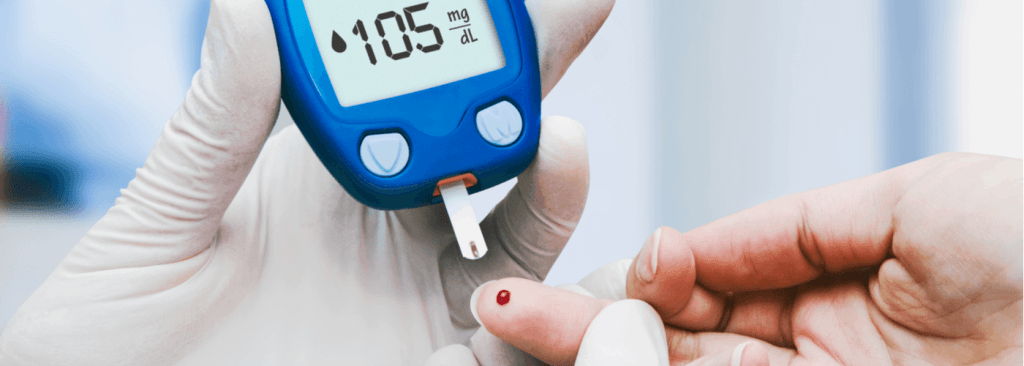Millions of people around the world are affected by type 2 diabetes. The CDC reports that more than 100 million people in the U.S. already have diabetes, and more than 80 million are pre-diabetic. [1]
Although these numbers are growing with each year, you can still fight this chronic disease. That’s why it’s best to find out about treatment options and outcomes. To that end, we present a few useful tips in the fight against type 2 diabetes.

Change Your Diet
First of all, you should reduce fats, refined carbs, sugary sweets, and meat intake. Apart from that, try to eat more fiber-rich foods through whole grains, fruits, and vegetables.
Keep Track of Blood Sugar Levels
Staying on top of your blood sugar levels and checking it often will help you realize what food works for you. Diabetics can experience an increase in glucose levels through tobacco, medications, and alcohol, so it’s best to cut down on drinking and smoking.
Don’t Forget to Exercise
Thirty minutes of exercise five times a week does wonders for diabetes, and a combination of resistance and cardio training will give you the best results.
For instance, take three or four 30-minute walks each week, and include a day or two of yoga. Doing more than this will likely boost your health further, but consult your physician to see what exercises are right for you.
Use Prescription Medication
Your family physician can prescribe many different type 2 diabetes medications depending on a few things, including insulin injections (Novolog, Levemir, Apidra).
Here are the most common diabetes medications:
GLP-1 receptor agonists (Victoza, Byetta)
Meglitinides (Starlix, Prandin)
Sulfonylureas (DiaBeta, Glucotrol)
SGLT2 inhibitors (Invokana, Farxiga)
Metformin (Glumetza, Glucophage)
Thiazolidinediones (Avandia, Actos)
DPP-4 inhibitors (Tradjenta, Januvia)
Explore Alternative Diabetes Treatments
Diabetics with a BMI (body mass index) over 35 can benefit from bariatric surgery. The American Society for Metabolic & Bariatric Surgery reports that close to 90% of people with diabetes bring their blood sugar levels back to normal range after the procedure. Note though that bariatric surgery is not always safe, so consult a specialist.
Non-medical alternatives to this treatment include omega-3, ginseng, chromium, and starch blockers. However, according to Prevention, [3] there’s little scientific evidence to support taking these supplements.
Outcomes for Type 2 Diabetics
At the moment, this condition is chronic and lasts a lifetime. That said, people with mild cases, or those who are extremely focused on making changes, can make a partial or a full recovery. In addition to that, research from around the world promises new and improved diabetes medication.
The Second University of Naples [4] conducted a study which shoved working out along with changes in diet resulted in at least a partial diabetes remission in two-thirds of test subjects. Promising research from Duke University [5] combines GLP1 and biopolymer molecules to reduce the need for insulin shots to two per month. Furthermore, the University of California, San Diego [6] is developing a drug that reverses diabetic symptoms in mice without any side-effects.
The outcome for type 2 diabetics is constantly improving with new research. But even now you can make great strides by following a treatment regime from your doctor. If you want to know more, you can do your research online and compare any treatment options and medications easily.
[1]https://www.cdc.gov/media/releases/2017/p0718-diabetes-report.html
[2]https://asmbs.org/app/uploads/2009/03/Type-2-Diabetes-Fact-Sheet.pdf
[3]https://www.prevention.com/health/health-conditions/a20470234/alternative-treatments-for-type-2-diabetes/
[4]https://www.ncbi.nlm.nih.gov/pubmed/24722497
[4]http://lucasresearch.org/reduce-medication-frequency-diabetics/


